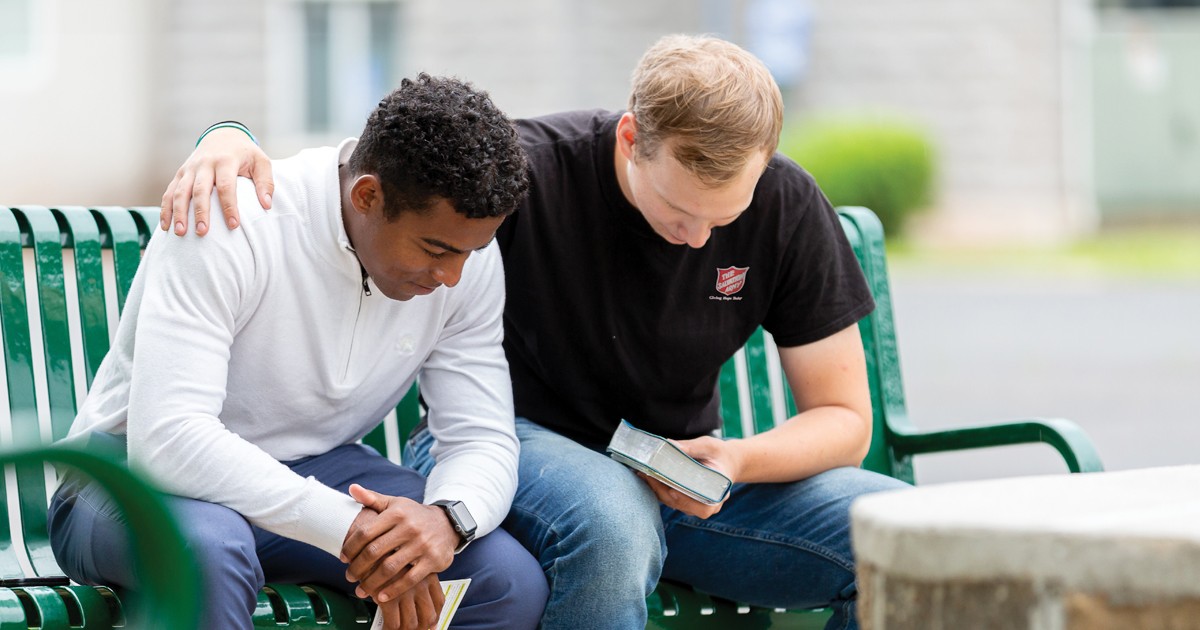Have you ever heard the standup comedian Russell Peters? I laughed so hard during this routine, when he recalled a time he was disrespectful to his father:
Dad: Somebody gonna get a hurt real bad.
Russell: Don't do it—I'll phone Children's Aid!
Dad: You'll do what?
Russell: I'll phone Children's Aid.
Dad: Is that right? Ohhh. Let me get you the phone, tough guy.
Russell: What are you doing? If I phone Children's Aid, you'll get in trouble!
Dad: I might get into a little bit of trouble, but I know it's going to take them 23 minutes to get here. In that time, somebody gonna get a hurt real bad!
Why did I laugh so hard? Because it brought back memories of a similar interaction with my daughter when she was 11. I was so flabbergasted by her insolence that I told her if she didn't stop talking to me like that, I would slap her face.
It wasn't a real threat; I stopped spanking my children when they were small because I didn't want to be like my mom, who hit me with a belt when she was really angry.
My daughter, in all her wisdom, said the same thing as Russell Peters: “I'll call social services and they'll arrest you for child abuse!” I told her to go ahead and call—not only would they arrest me, they'd put all of our children in foster care and they would be separated from us, and each other, for a long, long time. She was shocked into silence.
I'm not particularly proud of that conversation with my daughter. I could have handled it differently, but I let my emotions get the better of me.
All joking aside, hitting our children out of anger and frustration is called abuse. Some people still believe in corporal punishment. However, more and more evidence is piling up that this type of parenting causes long-term damage to a child's self-worth and often causes depression later in life.
Just this past June, I heard about a father who punished his daughter for “getting messed up” by cutting off her hair and posting the video on social media. She was bullied at school about it. Not long after that public shaming, she jumped off a bridge and died from her injuries.
So what's a parent to do when your child is disrespectful, uses foul language or disregards every rule or boundary you set? It may be that something has been simmering for a while and has finally come to the surface. At this point, it's time for a neutral third party or family counsellor to become involved to help you get to the bottom of what is going on.
Raising a child is one of the hardest things to do in life. They don't come with a manual! To get a driver's licence, you need to study and pass a test. But anyone can have a child, whether they know how to parent or not. Most of us learned what to do—or what not to do—from our own parents.
Three of our children were born before we entered training college. The two youngest were born after we became officers. Somewhere in-between, my parenting style drastically changed. I feel privileged to have a second chance. When I was younger, I wanted to be a perfect parent and have perfectly behaved children. I was much stricter and set tight boundaries. It amazes me that my three older children grew up to be so wonderful; it's likely in spite of me, rather than because of me.
With my two younger children, I decided it didn't matter if nasal mucous reached their lips and they used their sleeve to wipe their noses. I didn't worry about being perfect and was much more relaxed. I let them fail. I let them participate in making decisions about their lives. They aren't perfect and neither am I, but we do our best.
The best advice I ever received and put into practice? I pray for them every day. I try my best to live for God and serve others. I let them know God loves them just the way they are and I don't worry as much anymore. I trust God to keep them in his care and be with them always.
Major Kathie Chiu is the corps officer at Richmond Community Church, B.C.
Dad: Somebody gonna get a hurt real bad.
Russell: Don't do it—I'll phone Children's Aid!
Dad: You'll do what?
Russell: I'll phone Children's Aid.
Dad: Is that right? Ohhh. Let me get you the phone, tough guy.
Russell: What are you doing? If I phone Children's Aid, you'll get in trouble!
Dad: I might get into a little bit of trouble, but I know it's going to take them 23 minutes to get here. In that time, somebody gonna get a hurt real bad!
Why did I laugh so hard? Because it brought back memories of a similar interaction with my daughter when she was 11. I was so flabbergasted by her insolence that I told her if she didn't stop talking to me like that, I would slap her face.
It wasn't a real threat; I stopped spanking my children when they were small because I didn't want to be like my mom, who hit me with a belt when she was really angry.
My daughter, in all her wisdom, said the same thing as Russell Peters: “I'll call social services and they'll arrest you for child abuse!” I told her to go ahead and call—not only would they arrest me, they'd put all of our children in foster care and they would be separated from us, and each other, for a long, long time. She was shocked into silence.
I'm not particularly proud of that conversation with my daughter. I could have handled it differently, but I let my emotions get the better of me.
All joking aside, hitting our children out of anger and frustration is called abuse. Some people still believe in corporal punishment. However, more and more evidence is piling up that this type of parenting causes long-term damage to a child's self-worth and often causes depression later in life.
Just this past June, I heard about a father who punished his daughter for “getting messed up” by cutting off her hair and posting the video on social media. She was bullied at school about it. Not long after that public shaming, she jumped off a bridge and died from her injuries.
So what's a parent to do when your child is disrespectful, uses foul language or disregards every rule or boundary you set? It may be that something has been simmering for a while and has finally come to the surface. At this point, it's time for a neutral third party or family counsellor to become involved to help you get to the bottom of what is going on.
Raising a child is one of the hardest things to do in life. They don't come with a manual! To get a driver's licence, you need to study and pass a test. But anyone can have a child, whether they know how to parent or not. Most of us learned what to do—or what not to do—from our own parents.
Three of our children were born before we entered training college. The two youngest were born after we became officers. Somewhere in-between, my parenting style drastically changed. I feel privileged to have a second chance. When I was younger, I wanted to be a perfect parent and have perfectly behaved children. I was much stricter and set tight boundaries. It amazes me that my three older children grew up to be so wonderful; it's likely in spite of me, rather than because of me.
With my two younger children, I decided it didn't matter if nasal mucous reached their lips and they used their sleeve to wipe their noses. I didn't worry about being perfect and was much more relaxed. I let them fail. I let them participate in making decisions about their lives. They aren't perfect and neither am I, but we do our best.
The best advice I ever received and put into practice? I pray for them every day. I try my best to live for God and serve others. I let them know God loves them just the way they are and I don't worry as much anymore. I trust God to keep them in his care and be with them always.
Major Kathie Chiu is the corps officer at Richmond Community Church, B.C.










Leave a Comment